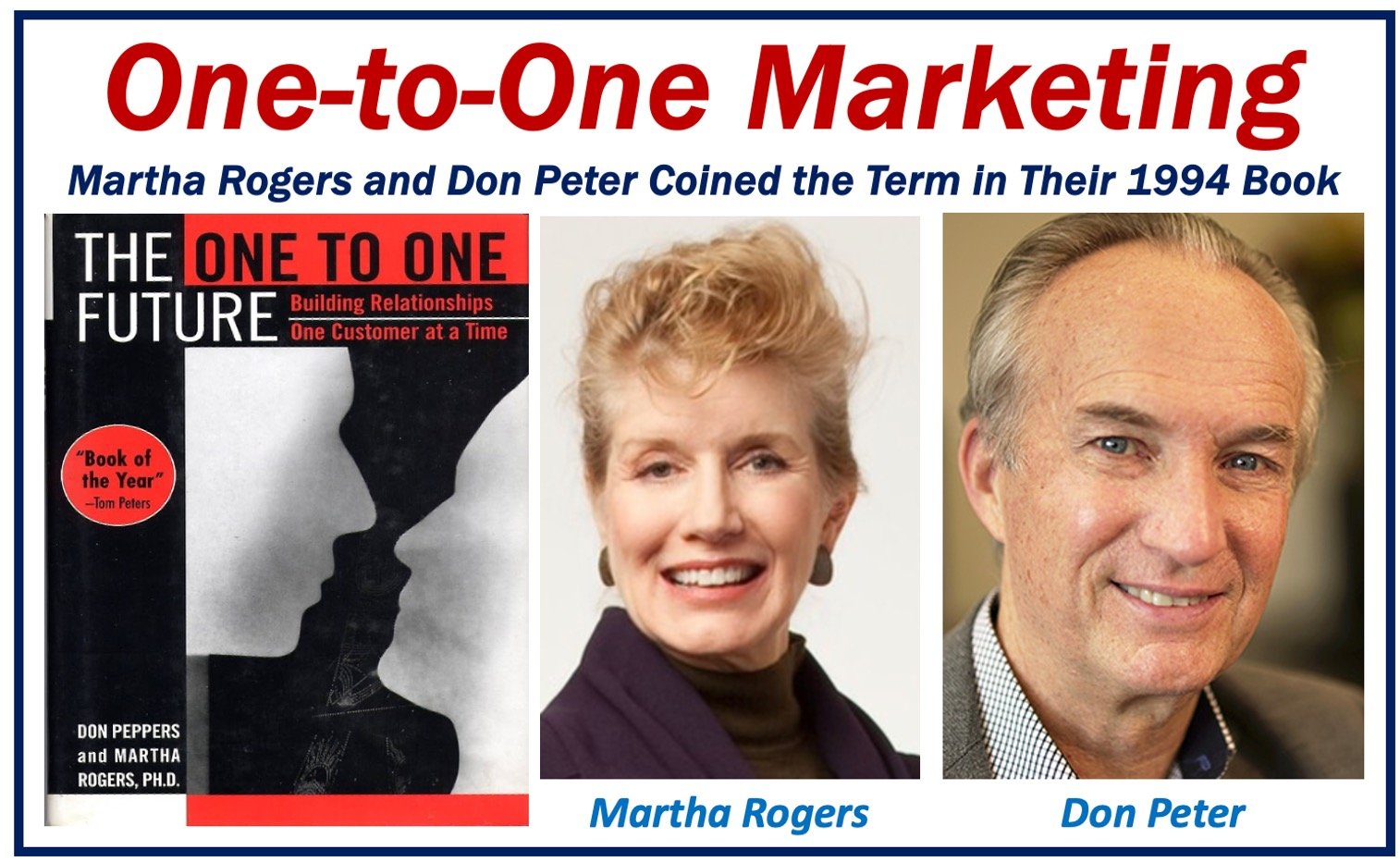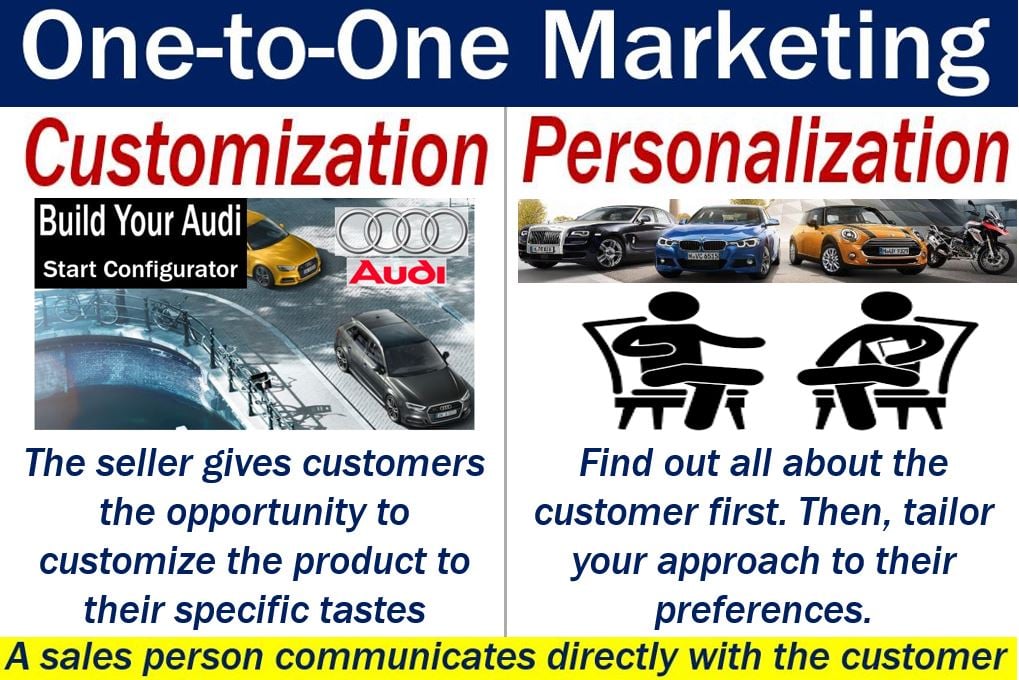One-to-one marketing or 1:1 marketing is a type of direct marketing in which a salesperson communicates directly with somebody. This person is somebody the company targets deliberately. It is a CRM strategy that focuses on personalized interactions with customers or potential customers. CRM stands for Customer Relationship Management.
We also use the terms personalized marketing and individual marketing with the same meaning as one-to-one marketing. Marketing refers to analyzing the market, finding out what consumers want, and then determining whether you can deliver it. Above all, determining whether you can deliver it at the right price.
Marketing executives claim that one-to-one marketing generates a better return on marketing investment. This is due partly to greater customer loyalty. Customer loyalty refers to customers coming back for more repeatedly.
First mention in 1994

Martha Rogers and Don Peppers first mentioned the term in their 1994 book ‘The One To One Future.’ They proposed the idea of one-to-one marketing as a CRM approach.
In a one-to-one marketing dialog, for example, the sales representative listens to the customer. Specifically, they listen to what the customer needs and then propose services they can offer.
Providers of both goods and services may use this kind of CRM approach.
One-to-one marketing – an old concept
The term has not been around for more than twenty-five years. However, the one-to-one marketing approach is as old as business itself.
For centuries, general store owners, for example, have always taken a one-to-one approach with their customers.
Ever since the birth of commerce, business owners have remembered details about each customer. They have subsequently used that knowledge to improve their service and boost sales.

A segment of one
We sometimes refer to one-to-one marketing as a ‘segment of one.’
Customer segmentation is the practice of dividing customer bases into groups of individuals.
These individuals are similar in specific ways that are relevant to marketing. For example, we may divide segments into spending habits, age, interests, job types, or gender.
In other words, customer segmentation concentrates on customizing marketing components for customer groups rather than individual people.
One-to-one marketing – tailoring our approach
One-to-one marketing is a strategy that relies on getting to know the choices customers make. Specifically, individual customers.
We then tailor our marketing approach to each customer differently. How we approach them depends on the choices they made.
In fact, we do not use the approach to attract the customer’s attention. Rather, we use it to maintain their attention, and ultimately, keep them buying from us.
One-to-one marketing – two types
In 1:1 marketing, there are basically two types; personalization and customization.
Customization
The seller gives customers the opportunity to customize the product to their specific tastes. In this case, the company does not, however, focus on learning what each customer’s preferences are.
For example, a car manufacturer offers the basic car. The customer then can add features themselves, such as color, engine size, types of seats, etc.
Additionally, customers can specify what type of wheels they want and whether they want an automatic or manual vehicle.
Personalization
The seller finds out what customers’ tastes and personal preferences are. The seller does this on an individual basis.
Then, the company customizes its marketing plan according to each individual’s taste and preferences.
Many online retailers do this today. For example, have you noticed how Amazon.com suggests new products? They are always goods that we have either showed an interest in or bought.
